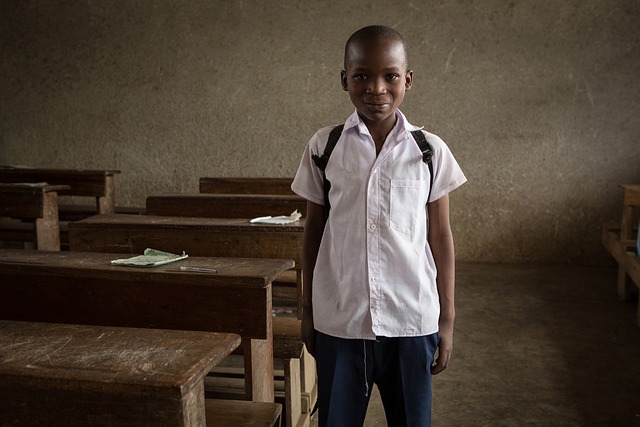In Karachi, Pakistan, standardized testing dominates education but faces criticism due to regional disparities and a diverse population. The centralized exam system fails to account for local contexts and individual student needs. There's a growing push to reevaluate assessment methods, advocating for tailored alternatives like performance-based tasks and project-based learning (PBL). This shift aims to foster critical thinking, creativity, and problem-solving skills, ensuring education remains relevant in the modern world. By embracing alternative assessment techniques, Karachi can transform educational systems to nurture holistic student development.
In Karachi, as in many educational systems worldwide, standardized testing dominates assessment methods. This article reevaluates this current landscape, exploring the historical evolution and inherent gaps in testing systems. We delve into the challenges and criticisms, uncovering critical issues that hinder effective learning. By examining alternative assessment methods, we open new horizons for holistic education reform. Drawing from lessons learned, this piece offers future directions to enhance the testing framework in Karachi and beyond.
- The Current Landscape of Standardized Testing in Karachi
- Historical Perspective: Evolution and Gaps in Testing Systems
- Challenges and Criticisms: Uncovering the Issues
- Alternative Assessment Methods: Exploring New Horizons
- A Holistic Approach to Reform: Lessons Learned and Future Directions
The Current Landscape of Standardized Testing in Karachi

In Karachi, as in many parts of Pakistan, standardized testing plays a pivotal role in shaping educational outcomes and career paths. The current landscape is dominated by high-stakes exams that are often seen as a one-size-fits-all approach to evaluating students’ capabilities. These tests, while widely used, have sparked debates about their effectiveness and fairness, especially considering Karachi’s diverse and dynamic demographic makeup. With a population of over 15 million, the city presents unique challenges in education, including varied access to quality resources and significant urban-rural disparities.
Standardized testing in Karachi is largely centralized, with national exams dictating academic progress and university admissions. While this system has its merits in ensuring consistency, it also overlooks the local context and individual student needs. In light of these concerns, there’s a growing call for reevaluation, advocating for more nuanced assessment methods that cater to Karachi’s diverse educational landscape. This shift could involve exploring alternative assessments, incorporating performance-based tasks, and fostering a more holistic view of student success beyond test scores.
Historical Perspective: Evolution and Gaps in Testing Systems

In the historical perspective, standardized testing in Karachi and across Pakistan has evolved significantly since its introduction. Initially designed as a tool to assess students’ knowledge and skills on a large scale, the system faced various challenges over time. Early testing systems were often criticized for lacking cultural sensitivity and failing to account for regional differences, especially in diverse cities like Karachi. These gaps led to concerns about fairness and validity, prompting successive reforms aimed at making assessments more inclusive and relevant.
Despite these efforts, critics argue that current testing systems still struggle to keep pace with the dynamic nature of education and society. The rapid advancements in technology, for instance, have not been fully integrated into assessment methods, leaving gaps between what students learn and how they’re evaluated. Moreover, there’s a growing recognition that standardized tests often fail to capture the full spectrum of student abilities, including creativity, critical thinking, and problem-solving skills, which are crucial for success in today’s complex world.
Challenges and Criticisms: Uncovering the Issues

Standardized testing, once considered a cornerstone of education evaluation, has faced increasing criticism and challenges in modern systems, especially in diverse urban centers like Karachi. One of the primary concerns is the narrow focus on academic performance, often measured through multiple-choice questions, which fails to capture the multifaceted nature of learning. Critics argue that such tests encourage rote memorization over critical thinking and problem-solving skills, essential for navigating the complex real-world challenges students will face.
Furthermore, standardized testing has been accused of exacerbating educational disparities. The tests, often designed without cultural sensitivity, may not accurately reflect the knowledge and abilities of students from diverse backgrounds. In Karachi’s vibrant yet heterogeneous population, this can lead to unfair assessments, negatively impacting opportunities for marginalized communities. As such, there’s a growing call for alternative evaluation methods that better align with the diverse needs and potential of all learners.
Alternative Assessment Methods: Exploring New Horizons

In recent years, Karachi, like many cities worldwide, has witnessed a growing movement towards reevaluating standardized testing as the primary method of assessment in educational systems. Traditional pen-and-paper exams often fail to capture the true potential and diverse learning styles of students, leading educators and policymakers to explore alternative assessment methods. These new approaches aim to provide a more comprehensive evaluation of students’ knowledge and skills, moving beyond the limitations of multiple-choice questions and short answers.
One such method gaining traction is performance-based assessment, which encourages students to demonstrate their understanding through practical tasks and projects. For instance, in Karachi’s vibrant educational landscape, schools are integrating project-based learning (PBL) into their curricula. PBL allows students to engage deeply with topics, fostering creativity, critical thinking, and problem-solving skills. By assessing students through presentations, research papers, or real-world applications, educators can gauge their ability to apply knowledge in meaningful contexts. This shift towards alternative assessment methods promises to revolutionize education in Karachi, ensuring a more holistic and tailored learning experience for all students.
A Holistic Approach to Reform: Lessons Learned and Future Directions

In reevaluating standardized testing in current systems, particularly in urban centers like Karachi, a holistic approach offers valuable lessons and promising future directions. Beyond the traditional metrics of academic achievement, there’s a growing recognition of the need to assess diverse skill sets—critical thinking, creativity, problem-solving, and emotional intelligence. The shift towards a more comprehensive evaluation system is not just about identifying individual strengths; it’s about fostering an educational environment that nurtures holistic development.
Karachi, with its dynamic and multifaceted landscape, can serve as a case study for this transformation. By integrating alternative assessment methods, such as project-based learning, portfolio evaluations, and performance tasks, educational systems in Karachi can better capture the multifaceted abilities of students. This approach not only complements but enhances traditional standardized testing, ensuring that education remains relevant and responsive to the ever-evolving demands of society.
The reevaluation of standardized testing in Karachi’s current systems is a necessary step towards fostering a more equitable and holistic educational environment. By acknowledging the historical evolution, identifying challenges, and exploring alternative assessment methods, we can navigate a path toward reform. Adopting a holistic approach, as illustrated by lessons learned from successful implementations around the world, will enable us to create a testing system that supports genuine learning outcomes and prepares students effectively for the future. This shift not only addresses the gaps in Karachi’s educational landscape but also promises to revolutionize the way we assess and nurture young minds.
